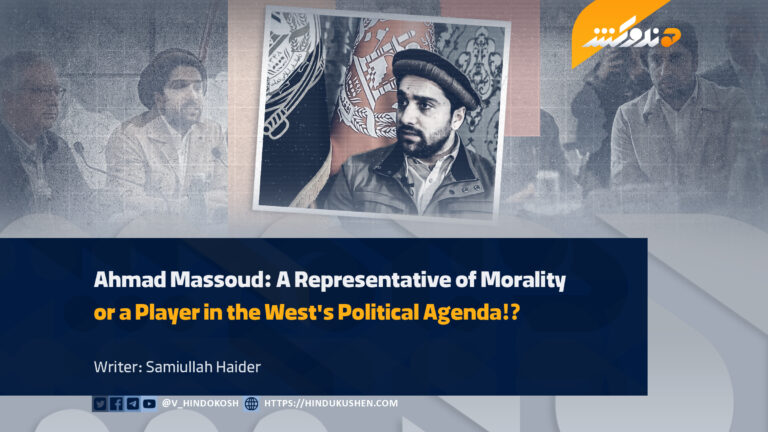Writer: Samiullah Haider
In the past few days, news was published about the presence and speech of Ahmad Massoud, the leader of the so-called Resistance Front, at a conference to be held on Jawza 22, 1404, in Paris, France, organized by Barnard College; a conference that will once again provide a platform for the empty and demagogic slogans of figures like Ahmad Massoud.
This conference, titled “Magnanimity in Politics,” will address topics such as “Ethics in Politics” and “The Current Situation in Afghanistan After the Taliban’s Takeover,” presented by Ahmad Massoud.
Before addressing the main topic, it should be mentioned that the other participants of this meeting, like Ahmad Massoud, currently hold no official positions and are, in fact, considered political has-beens, figures such as François Moulins, the “former” judge of the French Supreme Court, Dominique de Villepin, the “former” Prime Minister of France, and General François Lecointre, the “former” Chief of Staff of the French Army.
Regarding why the French government supports Ahmad Massoud just like his father and provides him with a platform despite having no popular or political base within Afghanistan, it should be said that this support is part of France’s policies to maintain regional influence and prevent the strengthening of the independence of the Islamic Emirate of Afghanistan. Just as in the past Ahmad Shah Massoud was promoted as a propaganda figure and symbol of fabricated resistance with the direct support of France and some Western countries, today his son is considered a continuation of the same project.
Ahmad Massoud, in this conference as in his other symbolic meetings, attempts to hide his true face by choosing a deceptive and slogan-like title such as “Ethics in Politics” and to rewrite the disgraceful actions of himself and his father by distorting history.
But how can Ahmad Massoud really speak about ethics in politics when there is a world of difference between his words and actions? He talks about unity and convergence while, in practice, since the fall of the corrupt republican regime, he has focused more on inciting ethnic and linguistic divisions than anything else in his quest for power.
Alongside discriminatory and hypocritical policies, Ahmad Massoud has repeatedly and openly requested financial, political, and even military assistance from foreign countries during this period; now the question is, how can such dependency and welcoming of foreign domination be justified by the concepts of political ethics?
It should also not be forgotten that Ahmad Massoud considers himself the heir to his father, Ahmad Shah Massoud’s way; a figure whose record is marked only by the bloodshed of the oppressed people of Afghanistan and the destruction of this land; an individual who played a key role in the atrocities of the internal wars, especially in the Afshar massacre.
In conclusion, it can be said that Ahmad Massoud’s presence in such meetings neither represents a commitment to political ethics nor signifies honesty in words and actions. Rather, it is a continuation of a project to whitewash a figure who, neither he nor his father, have ever represented national unity, political honesty, or independence.
He, relying on the support of foreign countries and misusing lofty ethical concepts, is trying to legitimize an image that, in the minds of the majority of the Afghan people, is seen as a symbol of division, discrimination, and dependency.
Note: The articles, essays, and comments published by the Voice of Hindukush only reflect the views of the authors & writers and do not necessarily represent the agreement of the Voice of Hindukush.




